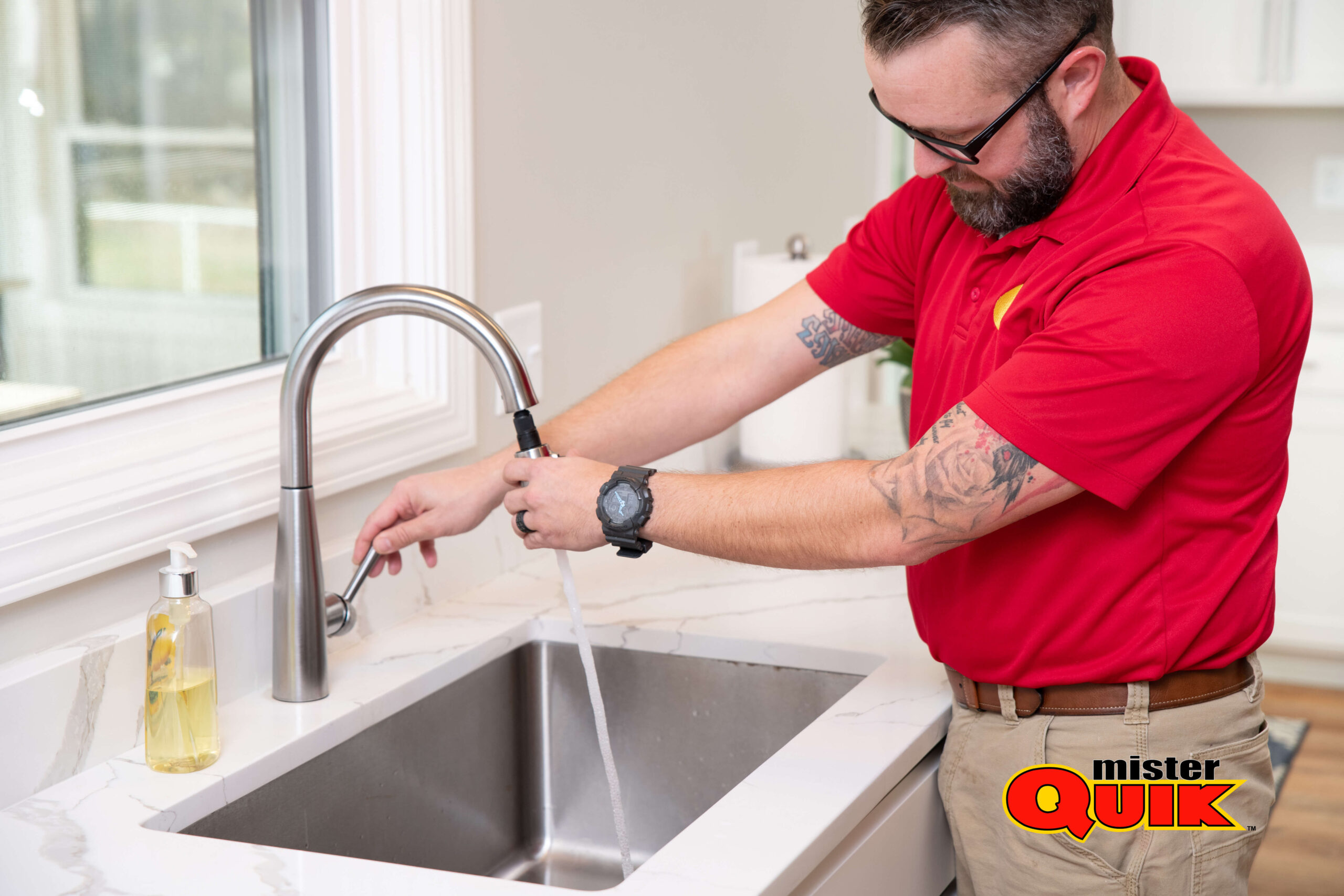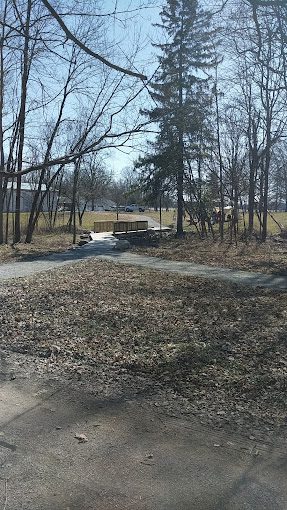Water hardness in Noblesville

Water hardness in my area
Are you frustrated with the effects of hard water in your home? You’re not alone. Many residents in Noblesville struggle with water hardness issues, but understanding what it is and how it affects you can make all the difference. Here’s a simple guide to help you grasp the concept and find solutions:
What is Water Hardness?
- Water hardness refers to the concentration of dissolved minerals, primarily calcium and magnesium, in your water supply.
- It’s typically measured in grains per gallon (GPG) or parts per million (PPM).
- Hard water is not harmful to your health, but it can cause various household problems.
Effects of Hard Water
- Soap scum: Hard water reacts with soap to form a sticky residue, leaving behind unsightly stains on your dishes, shower doors, and faucets.
- Scale buildup: Minerals in hard water can accumulate in pipes, appliances, and fixtures, reducing their efficiency and lifespan.
- Dry skin and hair: Hard water can strip away natural oils, leaving your skin feeling dry and itchy and your hair dull and brittle.
- Stiff laundry: Clothes washed in hard water may feel stiff and rough, and colors can fade more quickly.
Assessing Water Hardness
- You can test your water hardness using DIY kits available at hardware stores or by contacting a professional water testing service.
- The hardness level in Noblesville can vary depending on your location and the source of your water supply.
Dealing with Hard Water
- Water softeners: Installing a water softener system can effectively reduce the hardness of your water by replacing calcium and magnesium ions with sodium ions.
- Reverse osmosis: This filtration method can remove minerals and other impurities from your water, providing you with cleaner, softer water.
- Citrus-based cleaners: Natural alternatives like citrus-based cleaners can help combat soap scum and mineral buildup without the need for harsh chemicals.
Conclusion
Living with hard water in Noblesville doesn’t have to be a hassle. By understanding the causes and effects of water hardness and exploring available solutions, you can enjoy cleaner, softer water throughout your home. Don’t let hard water hold you back—take action today for a happier, healthier home environment.
Water hardness scale
If you’re dealing with hard water issues in Noblesville, understanding the water hardness scale can be the first step toward finding effective solutions. Here’s a straightforward guide to help you navigate the different levels of water hardness and what they mean for your home:
The water hardness scale measures the concentration of minerals, primarily calcium and magnesium, in your water supply. It's typically categorized into four main levels: soft, moderately hard, hard, and very hard.
Soft water: Contains fewer minerals and lathers easily with soap. Ideal for household chores and personal hygiene.
Moderately hard water: Slightly elevated mineral content, noticeable in soap usage and water clarity.
Hard water: Contains a significant amount of minerals, leading to soap scum, scale buildup, and reduced lathering.
Very hard water: High mineral concentration, causing severe scaling, dry skin, and appliance damage.
Soft water: Offers a gentle cleansing experience, leaving skin and hair feeling smooth and hydrated.
Moderately hard water: Provides satisfactory results for most household tasks but may require more detergent and maintenance.
Hard water: Leaves behind soap scum, and scale buildup, and can impact appliance efficiency and longevity.
Very hard water: Causes extensive damage to plumbing systems, appliances, and fixtures, requiring immediate attention.
Test your water: Use DIY test kits or consult with a professional to determine the hardness level of your water in Noblesville.
Choose the right solution: Consider water softeners, reverse osmosis systems, or other treatments based on your specific needs and budget.
Regular maintenance: Implement routine maintenance and monitoring to prevent scale buildup and prolong the life of your appliances and plumbing.
Hard water is defined by its high mineral content, primarily consisting of calcium and magnesium ions. These minerals dissolve into the water as it passes through rocks and soil, contributing to its hardness.
You can determine if you have hard water in your area by observing common signs such as white deposits or scaling on faucets, fixtures, and appliances, as well as soap scum buildup in sinks and bathtubs. Additionally, you may notice that your clothes feel stiff after washing or that your hair and skin feel dry and rough after bathing.
Water hardness test strips can provide a basic indication of water hardness levels by detecting the presence of calcium and magnesium ions. While they can give you a general idea, they may not always provide precise measurements compared to more comprehensive testing methods performed by professionals or using dedicated water testing kits.
The best water treatment system for hard water depends on factors such as the level of hardness, water usage, and personal preferences. Common treatment options include water softeners, which use ion exchange to remove calcium and magnesium ions, and reverse osmosis systems, which can effectively reduce mineral content. Consulting with a water treatment specialist can help determine the most suitable system for your specific needs.
Hard water is not considered harmful to kidneys. However, the minerals present in hard water may contribute to the formation of kidney stones in individuals who are predisposed to such conditions. Consuming an adequate amount of water and maintaining a balanced diet can help mitigate the risk of kidney stone formation, regardless of water hardness.
Hard water tester
Perhaps you’re tired of dealing with the effects of hard water in your Noblesville home. Understanding the hardness of your water is the first step towards finding effective solutions. With a hard water tester, you can quickly and accurately assess the mineral content in your water supply. Here’s everything you need to know about hard water testers:


- A hard water tester is a simple device used to measure the level of minerals, such as calcium and magnesium, in your water.
- It provides an easy-to-read result, indicating whether your water is soft, moderately hard, hard, or very hard.
- Hard water testers typically use test strips or liquid reagents to detect mineral ions in your water.
- You can perform the test by dipping the strip into a water sample or adding a few drops of the reagent to the water and observing the color change.
- Quick and easy: Hard water testers provide instant results, allowing you to assess your water’s hardness within minutes.
- Cost-effective: Investing in a hard water tester can save you money on professional water testing services.
- Empowerment: With a tester at your disposal, you can take proactive steps to address hard water issues in your home.
- Soft water: Indicates a low concentration of minerals, making it gentle on the skin and ideal for household use.
- Moderately hard water: Slightly elevated mineral levels may require increased detergent usage but generally pose minimal issues.
- Hard water: High mineral content can lead to soap scum, scale buildup, and reduced appliance efficiency.
- Very hard water: Severe mineral buildup can cause significant damage to plumbing systems and appliances.
A hard water tester is a valuable tool for homeowners in Noblesville dealing with hard water issues. By understanding your water’s hardness level and taking proactive steps to address it, you can enjoy cleaner, healthier water throughout your home. Don’t let hard water hold you back—take control of your water quality today with a reliable tester.
Hard water effects
If you’re grappling with hard water issues in Noblesville, understanding the effects it can have on your home is crucial. Hard water, containing high mineral concentrations, can lead to a range of challenges. Let’s delve into the impact of hard water and why addressing it promptly is essential:



Hard water reacts with soap, leaving behind a stubborn residue known as soap scum. Your bathroom surfaces, including shower doors, tiles, and faucets, may develop unsightly stains that are challenging to remove.


The minerals in hard water can accumulate in appliances like dishwashers, water heaters, and coffee makers. Over time, this scale buildup can reduce the efficiency of these appliances, leading to increased energy consumption and potential malfunctions.



Clothes washed in hard water may feel stiff and scratchy due to mineral deposits in the fabric. Colors may fade more quickly, and whites might turn grayish over time.
Hard water solutions for home
If you’re tired of battling the effects of hard water in your Noblesville home, it’s time to explore practical solutions. From water softeners to alternative treatments, there are several options available to improve the quality of your water. Here’s a comprehensive guide to help you find the right solution for your hard water woes:
1. Water Softeners:
- A water softener is a popular and effective solution for combating hard water.
- It works by exchanging calcium and magnesium ions with sodium ions, resulting in softer water that is gentler on your skin, appliances, and plumbing.
2. Reverse Osmosis Systems:
- Reverse osmosis systems utilize a semi-permeable membrane to remove impurities, including minerals, from your water.
- These systems can effectively reduce the hardness of your water, providing you with cleaner, fresher-tasting water for drinking and cooking.
3. Salt-Free Water Conditioners:
- Salt-free water conditioners use alternative methods, such as template-assisted crystallization or electromagnetic waves, to prevent scale buildup.
- While they do not remove minerals from your water, they can help prevent scale deposits in your plumbing system and appliances.
4. Magnetic Water Conditioners:
- Magnetic water conditioners utilize magnets to alter the structure of water molecules, reducing the formation of scale.
- While not as effective as traditional water softeners, they can still provide some relief from hard water issues.
Hard water treatment systems
Dealing with hard water in your Noblesville home can be a frustrating experience, but with the right treatment system, you can enjoy cleaner, softer water and alleviate the negative effects of hard water. Here’s a comprehensive overview of the various treatment systems available to address hard water issues:
Water softeners are one of the most common and effective solutions for treating hard water. They work by removing minerals such as calcium and magnesium from the water through a process called ion exchange. Water softeners provide long-term relief from hard water problems, resulting in softer water for bathing, cleaning, and household tasks.
Reverse osmosis systems are another popular option for treating hard water. These systems use a semi-permeable membrane to remove impurities, including minerals, from the water, producing high-quality, purified water. While reverse osmosis systems are effective at reducing hardness, they may also remove beneficial minerals from the water.
Salt-free water conditioners use alternative methods, such as template-assisted crystallization or electromagnetic waves, to prevent scale buildup. Unlike water softeners, salt-free conditioners do not remove minerals from the water but instead change the chemical structure to prevent scale formation.
By implementing these energy-efficient measures, you can significantly reduce your heating costs and enjoy a more comfortable living environment.
- Use a hard water tester or DIY test kits to determine the hardness level of your water in Noblesville.
- Consider consulting with a professional water testing service for accurate results and recommendations.
- Check for signs of soap scum buildup on dishes, shower doors, and faucets.
- Look for scale deposits on appliances such as dishwashers, water heaters, and coffee makers.
- Research various hard water treatment systems like water softeners, reverse osmosis systems, and salt-free conditioners.
- Consider factors such as effectiveness, maintenance requirements, and budget when choosing a treatment solution.
- Install the selected hard water treatment system in your Noblesville home according to manufacturer instructions.
- Ensure proper maintenance and monitoring to optimize the performance of the treatment system over time.
- Continuously test your water to monitor changes in hardness levels and the effectiveness of the treatment solution.
- Keep an eye out for any recurring signs of hard water issues and adjust your maintenance routine or treatment system as needed.









